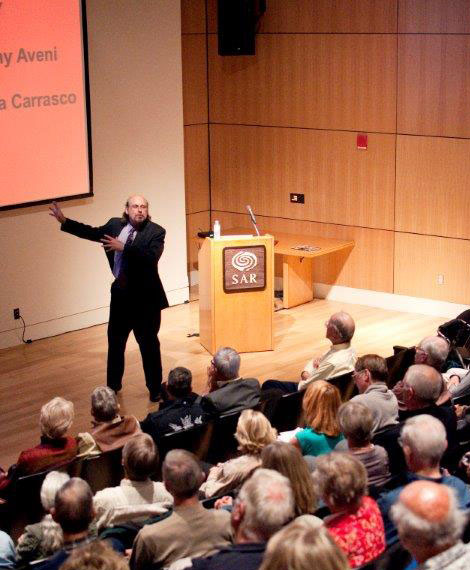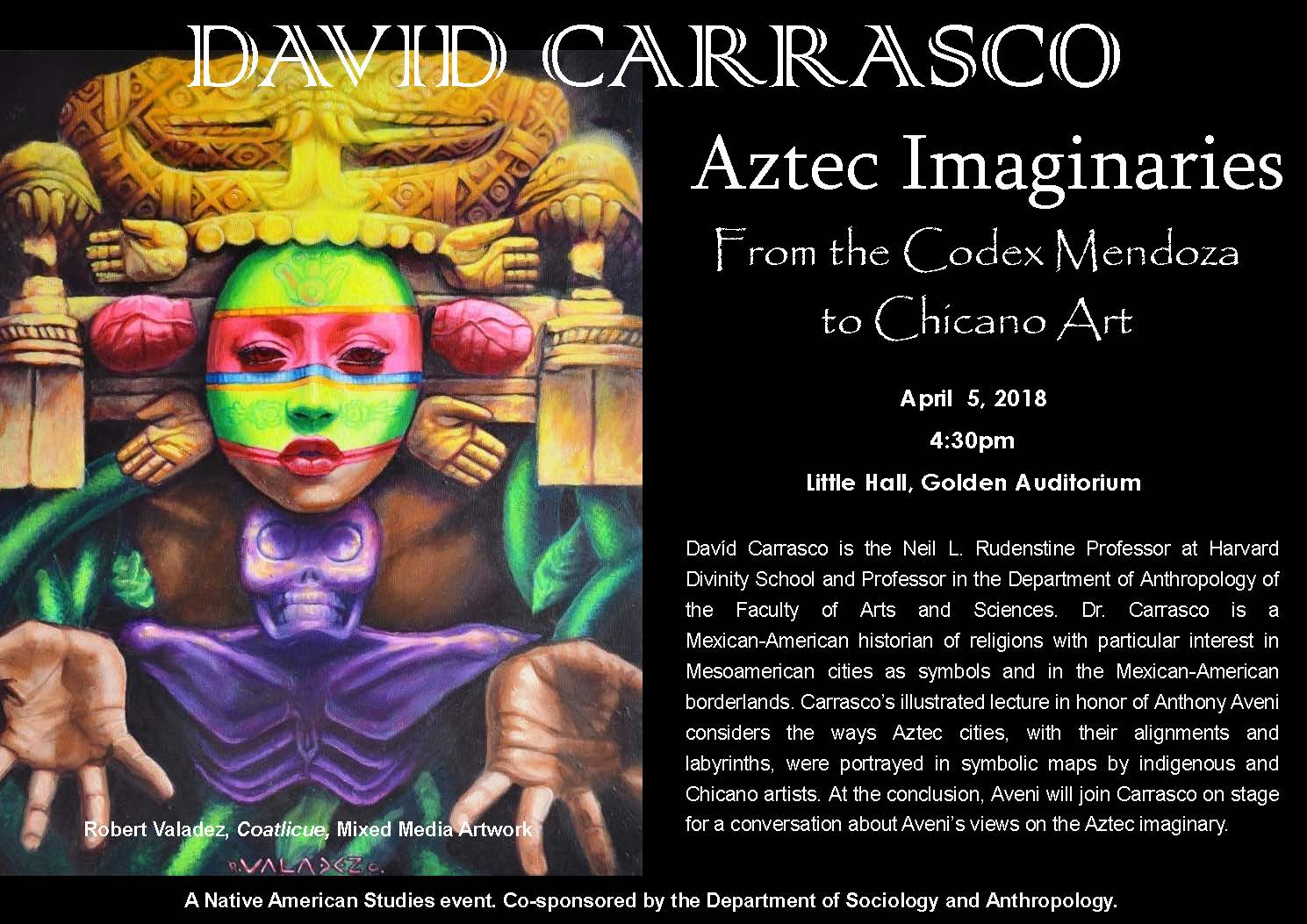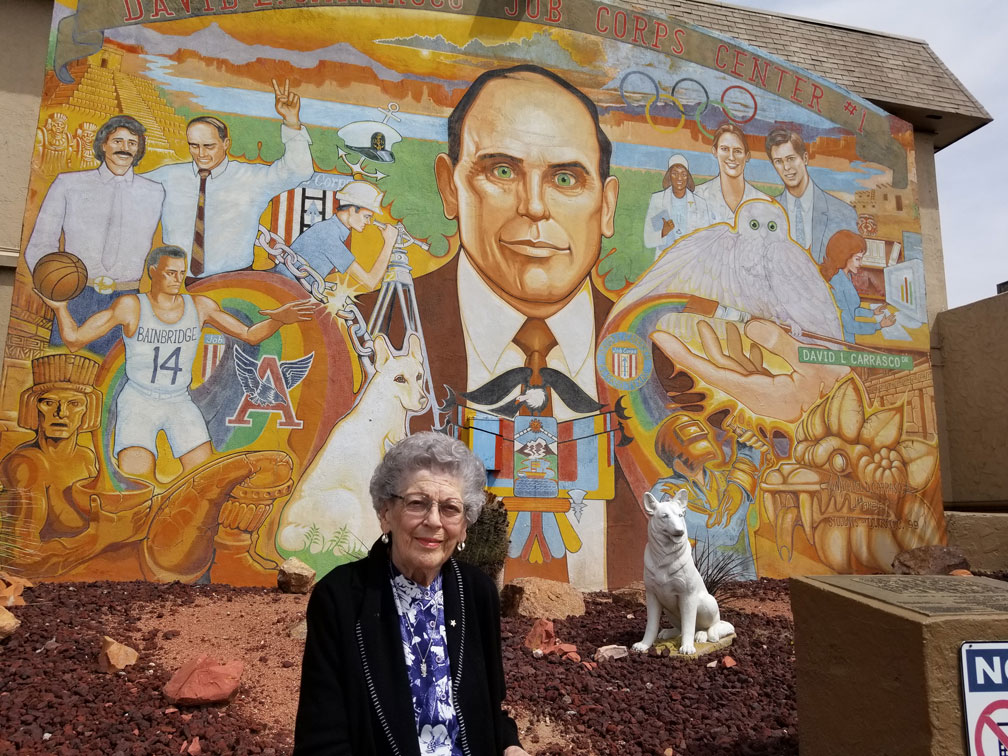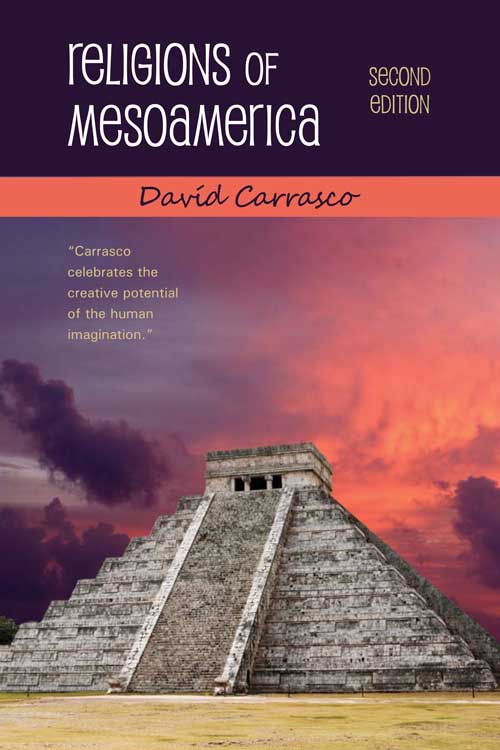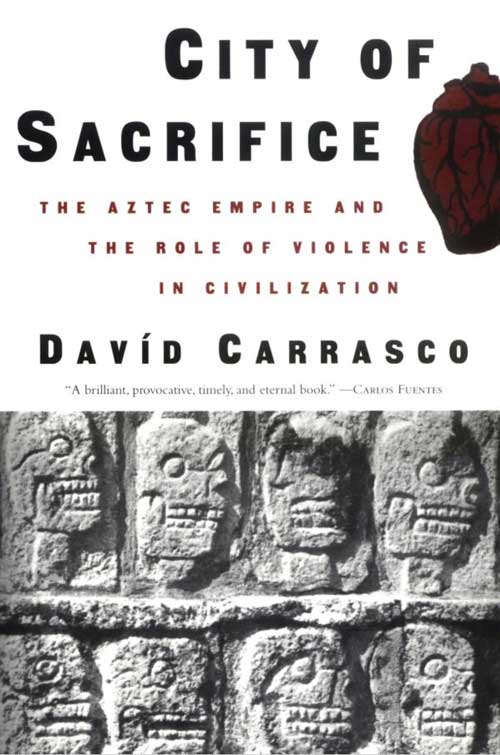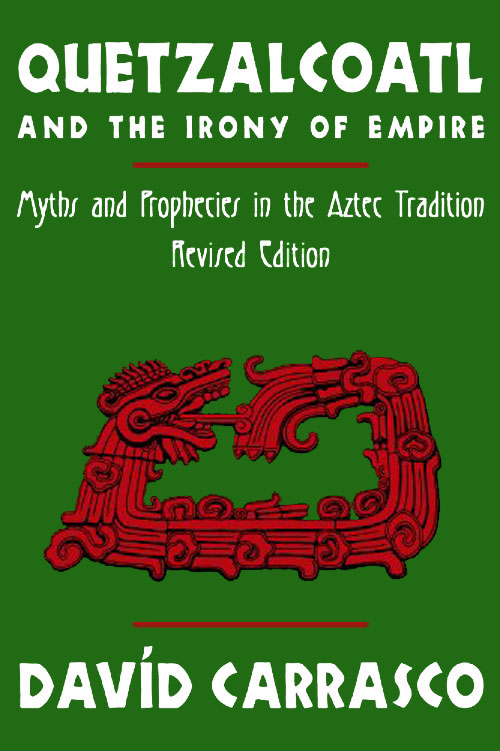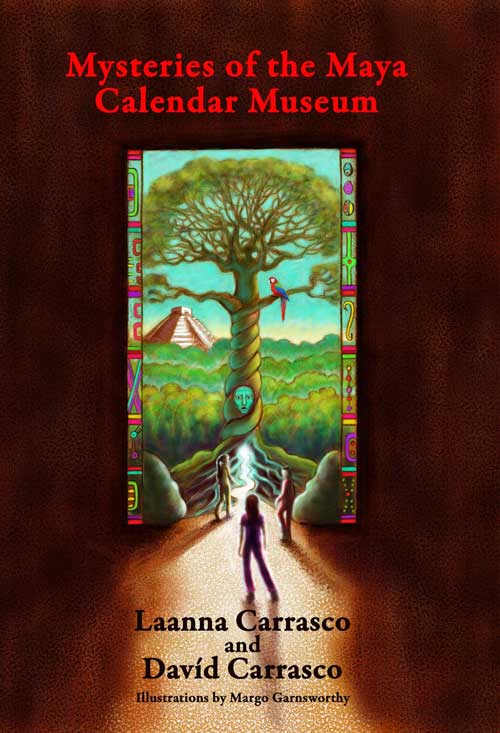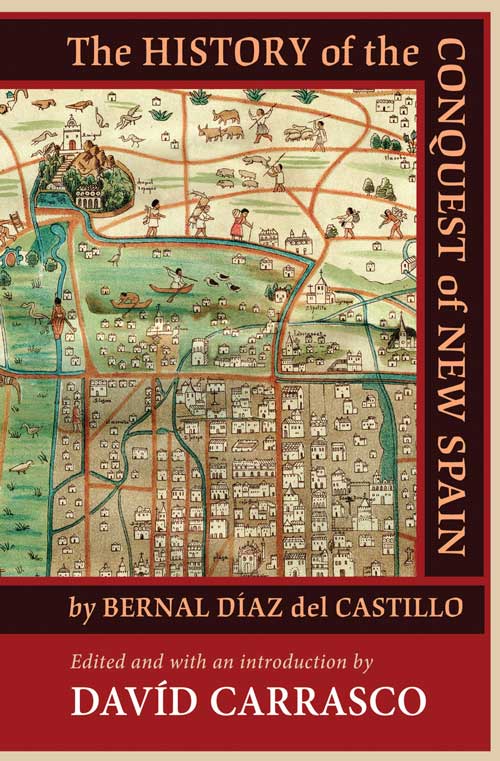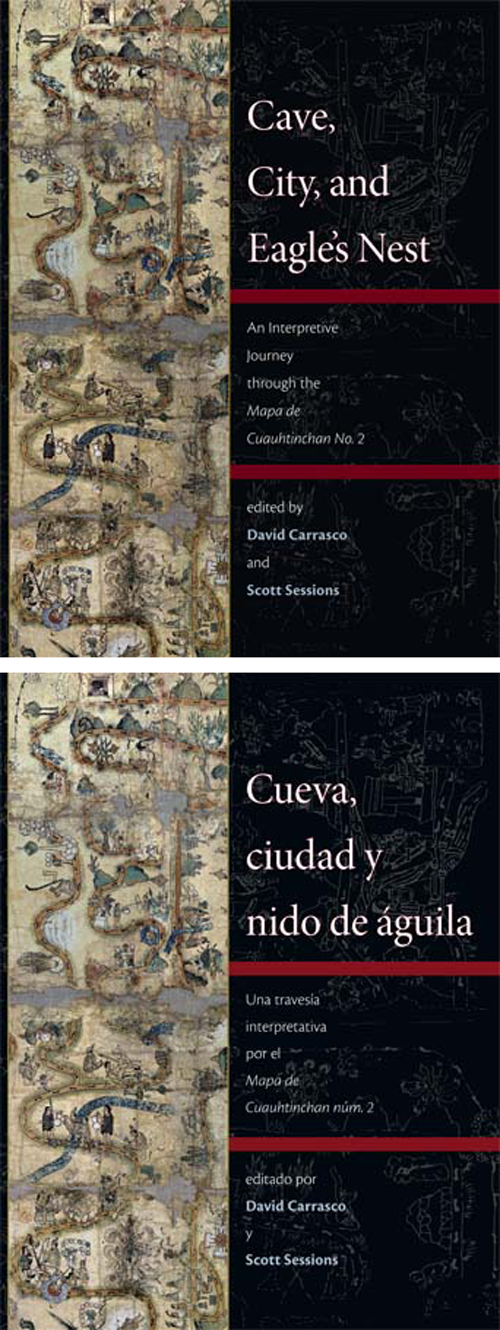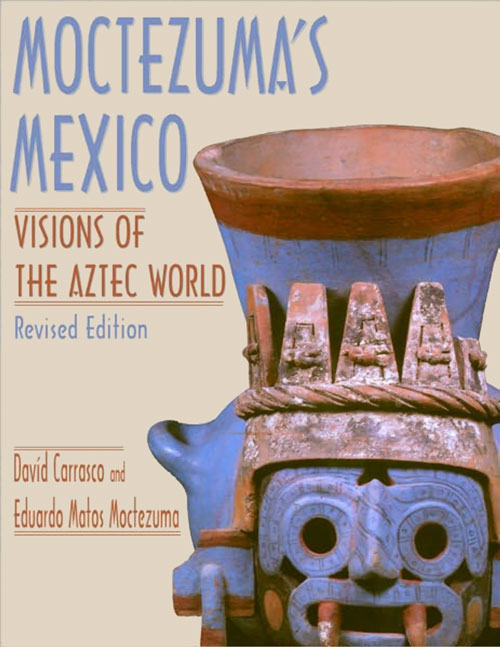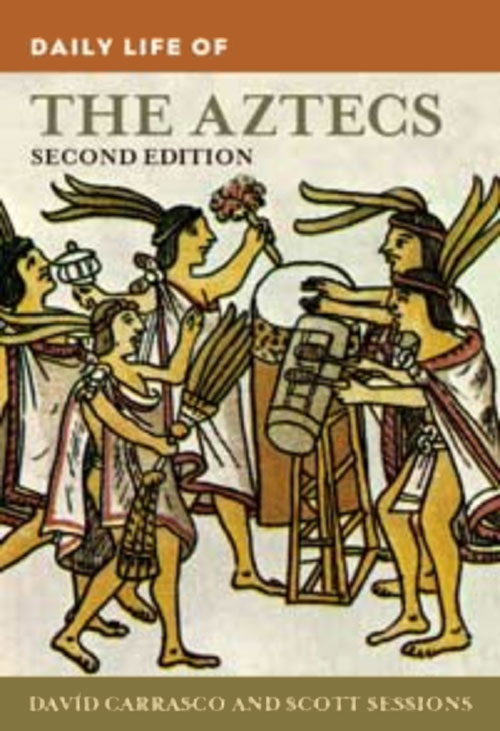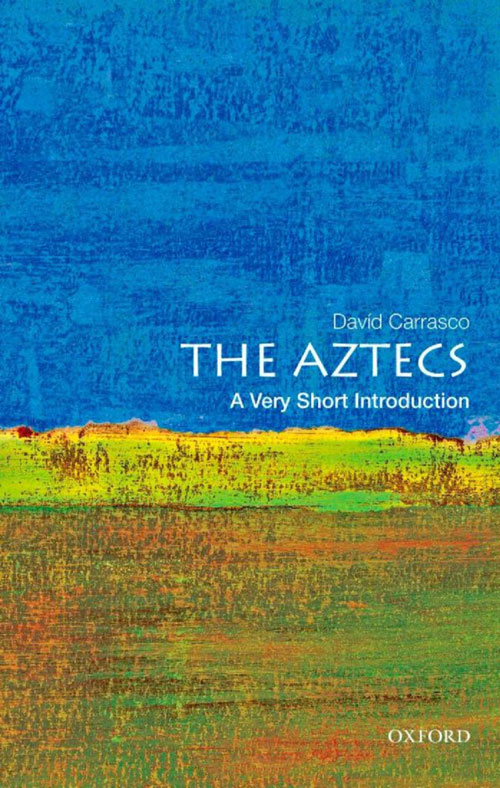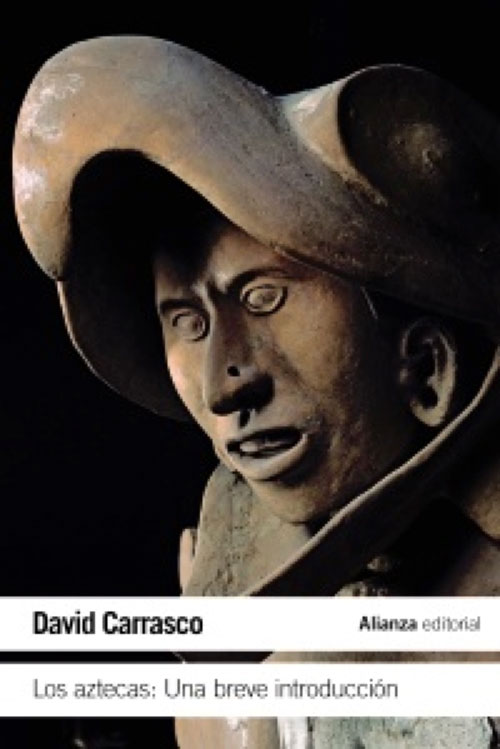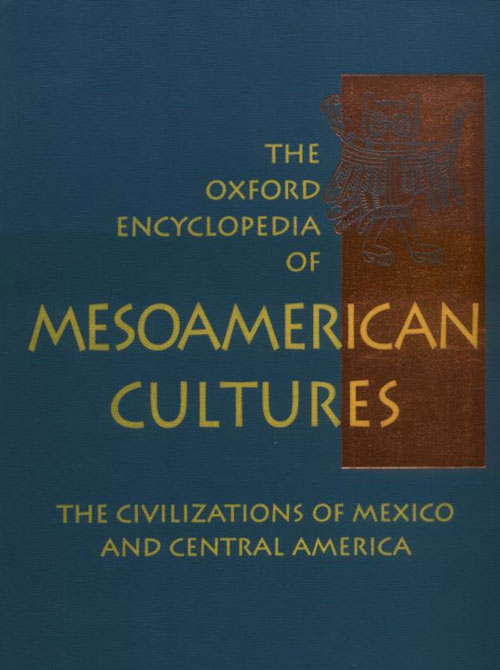Davíd Carrasco
Professor, Writer, Lecturer, Activist

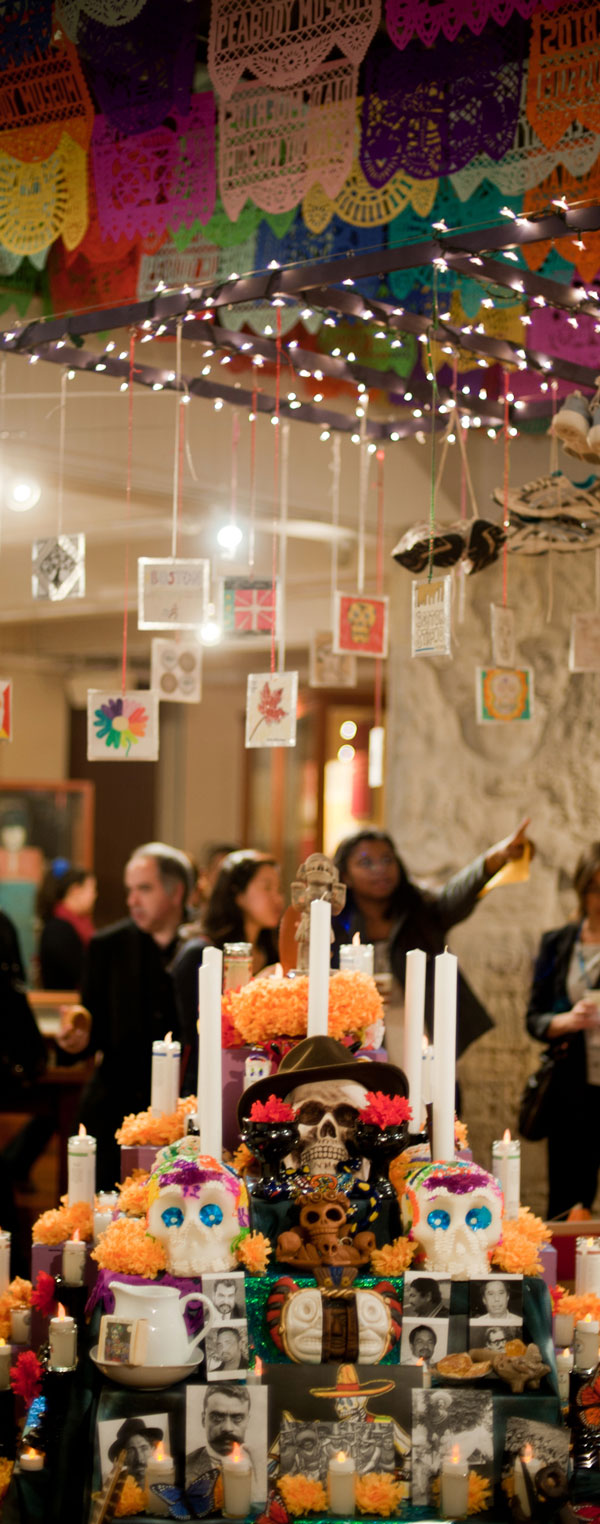
News
My friend Toni Morrison wrote in her Nobel Prize lecture “We die. That may be the meaning of life. But we do language. That may be the measure of our lives.”
Toni has died, but the meaning of her life can be found in her language and her measure is beyond our knowing. I think the Mexicans measured her best when, on the day we arrived at the national university, they greeted her with signs that showed her photo below the words, “Toni Morrison Entre Nosotros” i.e. Toni Morrison Among Us.
Because of her grace and beauty, her family and friends, her language and her readers, she remains “entre nosotros.”
What is our task now in mourning her? To remember and act on what she taught us in The Bluest Eye, Sula, Jazz, Tar Baby, and God Help the Child! Combine the inspiration with the moral task ahead. In Love she taught us the wisdom of having African American spiritual allies to give us the chance to love what we have lost. In Song of Solomon she taught us how to fly above the white terror of history when she wrote “If you surrendered to the air, you could ride it” as she is now riding Home to paradise. She gave us the way forward in the final paragraph of her novel Paradise. A woman named Piedade or Compassion sees another ship of migrants arriving in America. They are “lost and saved, atremble” at what will greet them at the borderland of the shore. The final sentence is “Now they will rest before shouldering the endless work they were created to do down here in Paradise.”
She once told me, “You know, Davíd, the real story is that the people who were treated like beasts did not become beastly.” Our Beloved Toni, who gave us new knowledge and loved us through her writings, has gone to her rest and we must shoulder the endless work we were created to do down here in the Americas. To show A Mercy to one another.
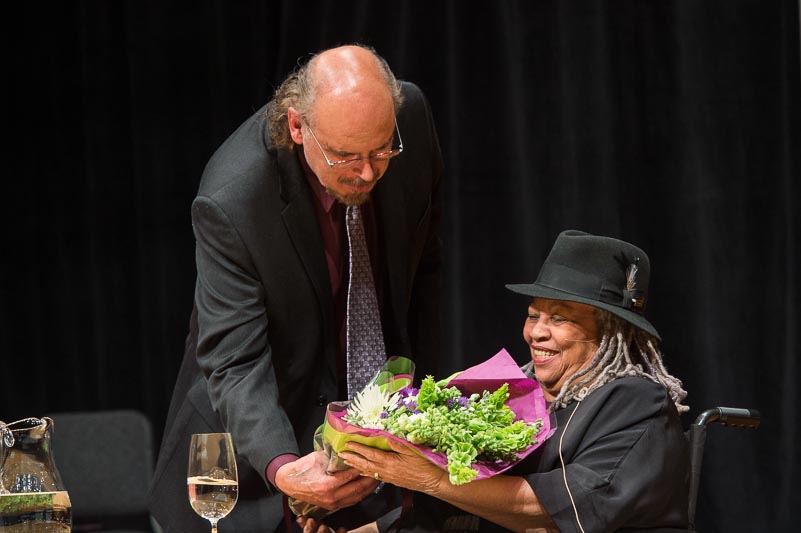
Carrasco is a cast member in new film "Toni Morrison: The Pieces I Am". In the film Carrasco tells of escorting Toni Morrison to Mexico City and also remarks on the religious dimensions of her novels. He attended New York City Premier of the film on Thursday, June 13th at the New York Public Library.
- Howie Movshovitz Review on KUNC in Denver
- Review in the Austin Chronicle
- Carrasco's contribution in the film quoted prominently in coverage by The Atlantic
- Carrasco and others featured in the film interviewed by The Wall Street Journal (paywall)
- A favorable review on The Independent
- An article on WBUR
- Official Trailer for Toni Morrison: The Pieces I Am
photos
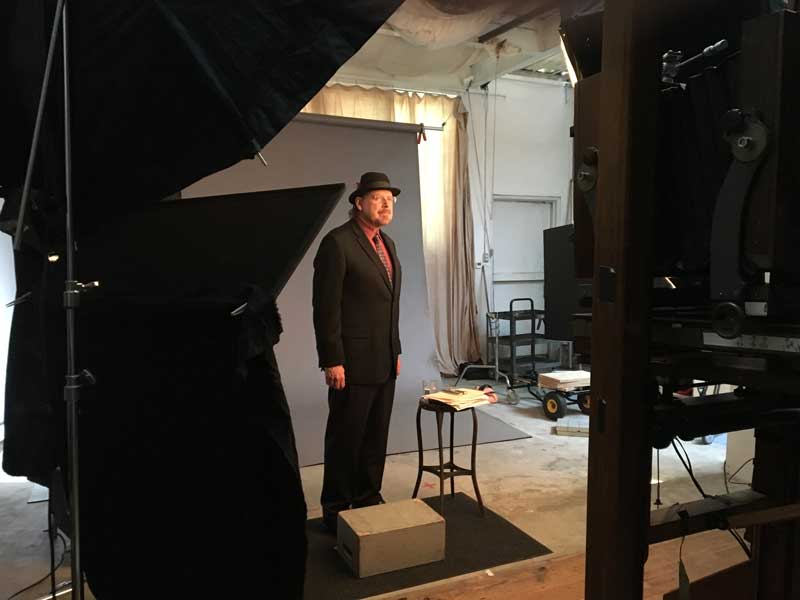
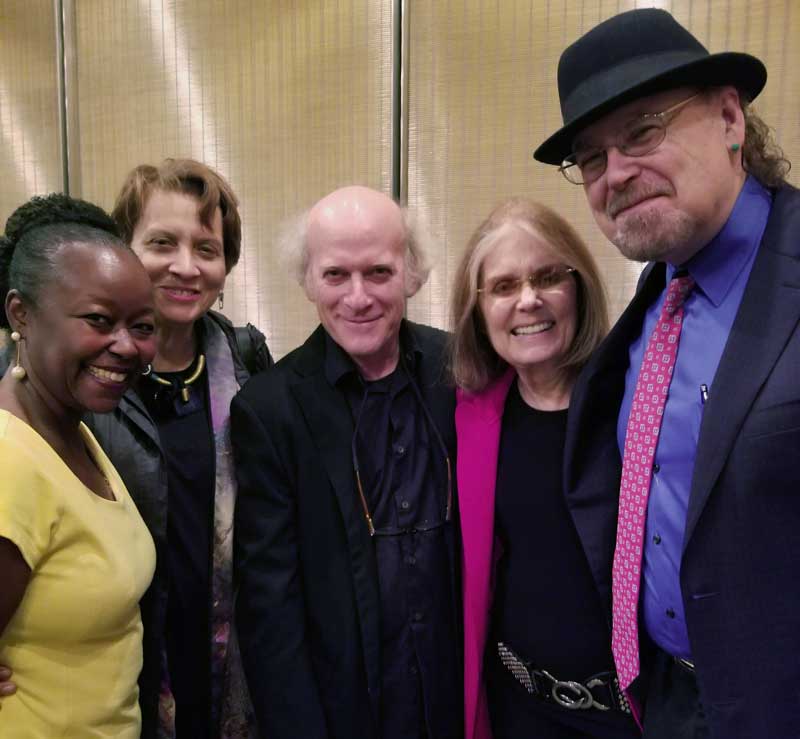
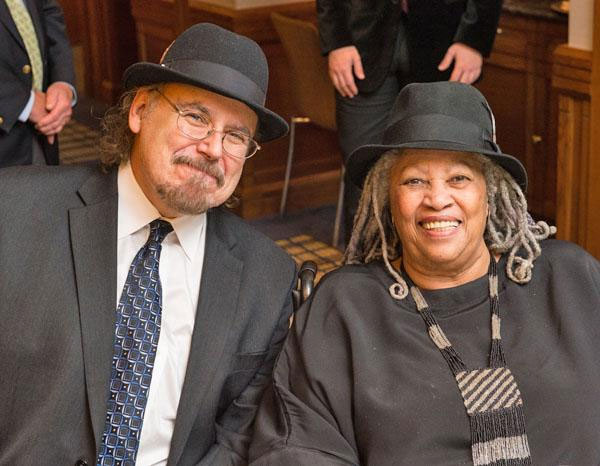
Davíd Carrasco gave the Alfonso Reyes Lecture "The Life and Three Voices of Carlos Fuentes" at Tecnologia de Monterrey University. Here he appears before a photo of Carlos Fuentes, Toni Morrison, Eduardo Matos Moctezuma and friends at the home of Carlos and Sylvia Lemus in 1995.
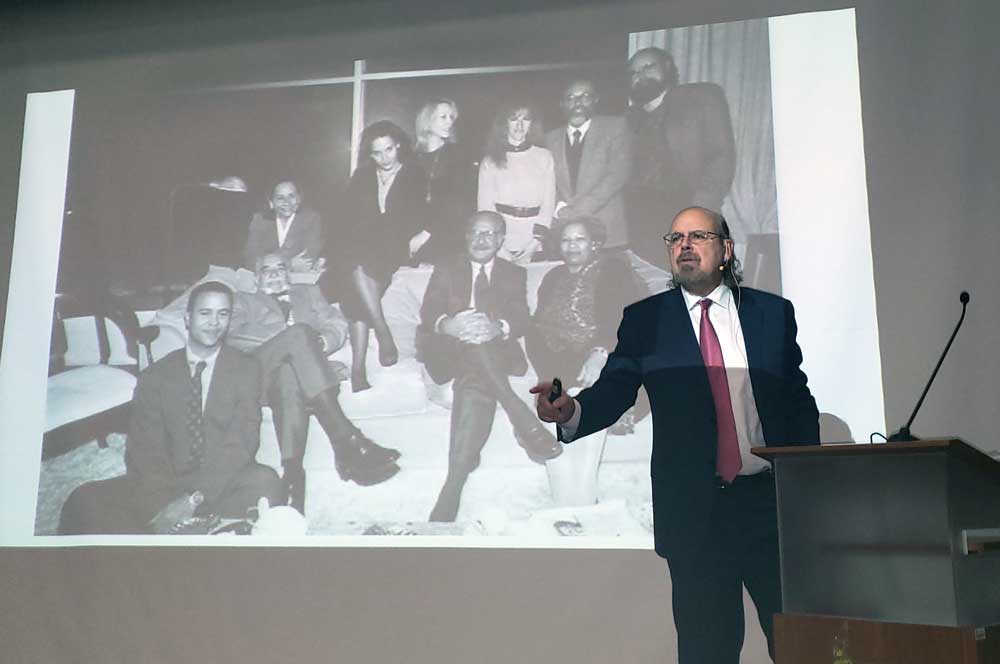
Carrasco will deliver the Cátedra Alfonso Reyes at Tec de Monterrey in March 2019.
The Harvard Divinity School website shares more on the upcoming PBS series including commentary on the following extended interview:
“I was thrilled to receive this message from a Boston 5th grade teacher about using "Mysteries of the Maya Calendar Museum," written by my daughter Laanna and me:
Hello Professor Carrasco,
Our fifth-grade class has enjoyed reading your book, “Mysteries of the Maya Calendar Museum.” We are going to the Magnificent Maya exhibit at the Peabody Museum at Harvard in two weeks as well. Just wanted to say thanks and if you know of any other age-appropriate learning materials for my class, please send them my way!
Ann-Marie Keltner, Park Street School, Boston
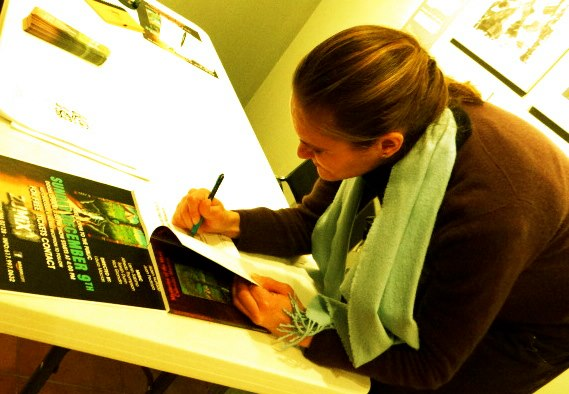
More coverage in American Indian Magazine of the upcoming four-part series “Native America,” from Providence Pictures airing on PBS this fall. Watch it on Tuesday evenings starting Oct. 23, 2018, from 9–10 p.m. ET.
Davíd Carrasco with Zuni farmer, scholar and river guide Jim Enote at the launch for PBS TV series “Native America” at the Television Critics Association Press Tour in Los Angeles. Enote and Carrasco are featured in several of the four episodes that will air starting October 23rd.
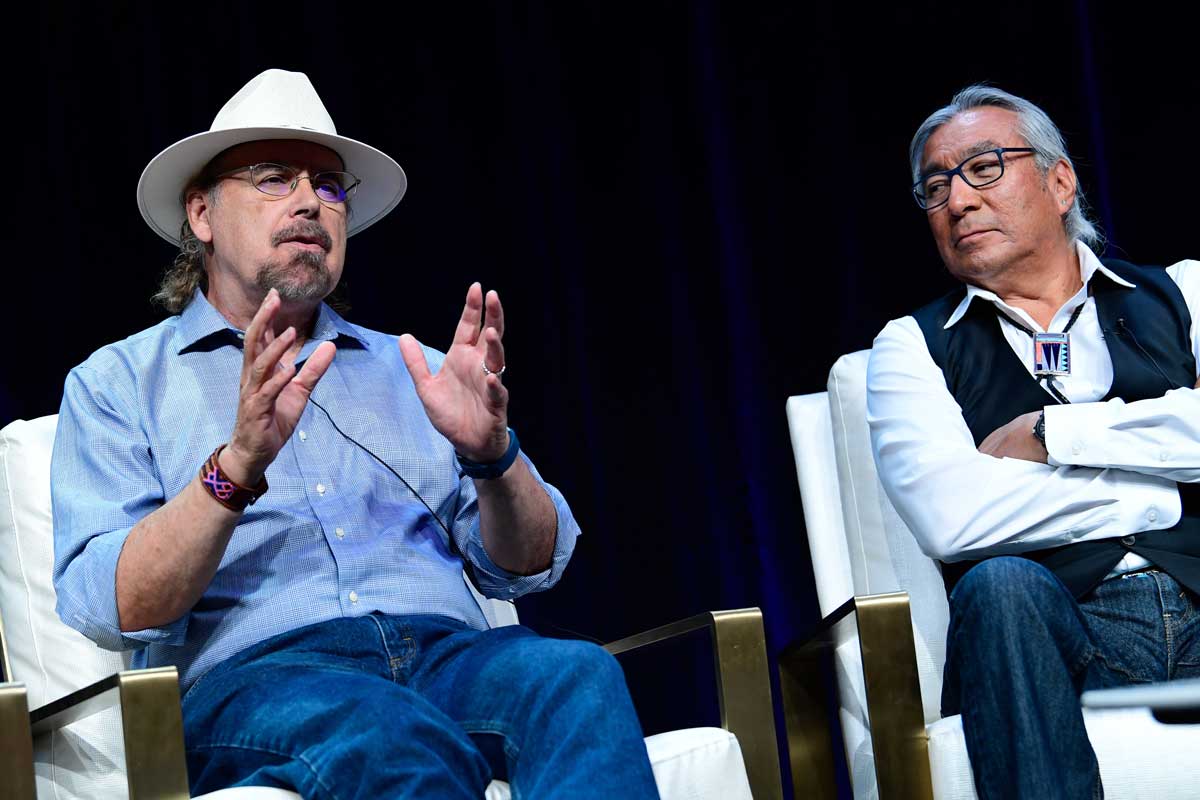
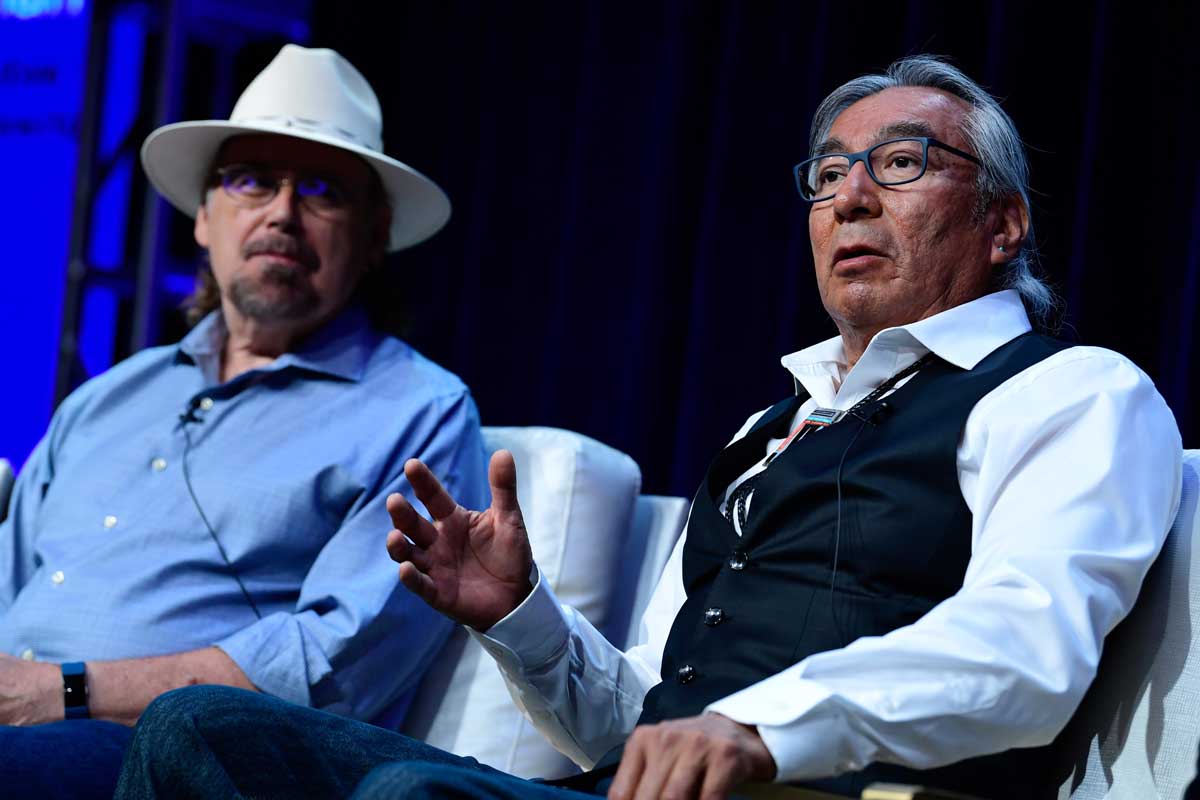
“I'm immersing myself in Toni Morrison's writings this summer. This task and pleasure is driven by the book project Professor Stephanie Paulsell, Mara Willard, and I are doing with Toni Morrison about the religious dimensions of her writings. This book, 'Goodness: Altruism and the Literary Imagination,' to be published by the University of Virginia Press, emerges from…continue reading
Davíd Carrasco is one of the faculty leaders in this new Executive Education Program, “Making Change” taking place this June 18-21 at the Harvard Divinity School.
Davíd Carrasco and Eduardo Matos Moctezuma spoke at Tec de Monterrey. Carrasco came on at minute 40 on the story of the return of Quetzalcoatl.
Carrasco interviewed by Dr. Mara Willard at the Berkeley Center for Religion, Peace & World Affairs at Georgetown University.
Harvard Gazette covers a weekly dialogue, “Quests for Wisdom: Religious, Moral, and Aesthetic Experiences in the Art of Living,” co-created by Carrasco and Professor Arthur Kleinman that looks at wisdom as it relates to how we experience the world, and the strategies we need to have a moral life amid uncertainty.
“…To recognize the seminal importance of [Eduardo Matos Moctezuma and Carrasco's] research, leading Harvard University scholars traveled to Mexico in October 2017 to inaugurate the Eduardo Matos Moctezuma Lecture Series.” Full article on Harvard Divinity School Site
Video on Facebook of Day of the Dead/Dia de los Muertos celebrations at Harvard's Peabody Museum of Archaeology and Ethnology curated by Carrasco and Mexican artist Mizael Sanchez.
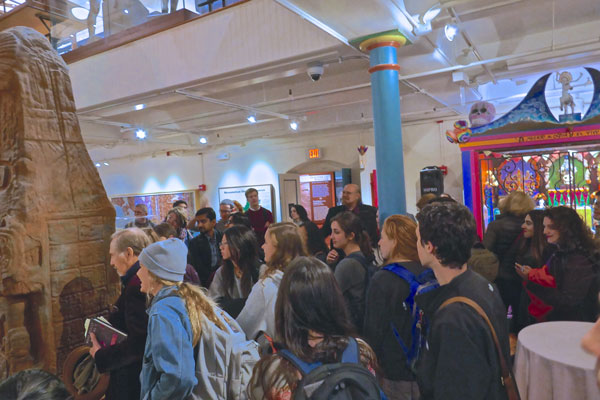
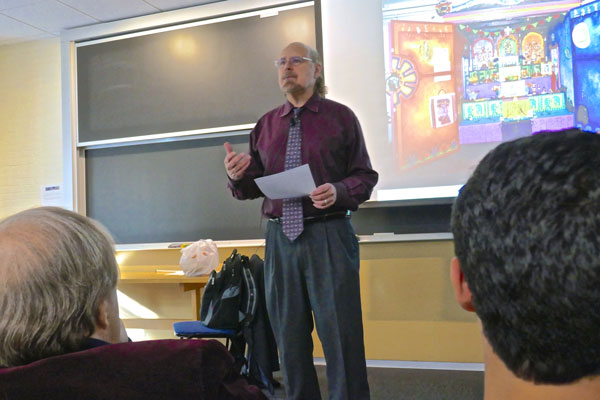
See Davíd Carrasco lead the way in inaugurating the “Eduardo Matos Moctezuma Lecture Series” in Mexico and Harvard. This is the first time in Harvard's almost 400 years that a lecture series in the name of a Mexican scholar has been launched.
The full event
The announcement (length 1:32):
Black/Brown Dialogues in the Future!
HDS Professor of the Practice of Public Philosophy Cornel West delivered the 2017 Convocation address “Spiritual Blackout, Imperial Meltdown, Prophetic Fightback,” on August 29, 2017.
Pay attention to the history of “Place”. What I find largely missing in the critical commentary about the terrible events in Charlottesville is the fact that this is the town and university where Thomas Jefferson, one of our Founding Fathers lived, wrote, owned slaves and produced mixed race offspring—largely based on his white raced privilege. Jefferson's language of “all men are created equal,” often quoted in the last several days, did not mean Africans or African Americans or Native Americans for that matter—nor Mixed Race people for that matter. That the riot (if Blacks had been the majority participants would this be referred to now as a “race riot?”) and killing of Heather Heyer took place in this Virginia town also points us back to this historical place as one place of the OFFICIAL origins of white supremacy in the United States. Paying attention to the “history of place” leads us to think harder about how old, deep and intractable white supremacy is, in the US story.
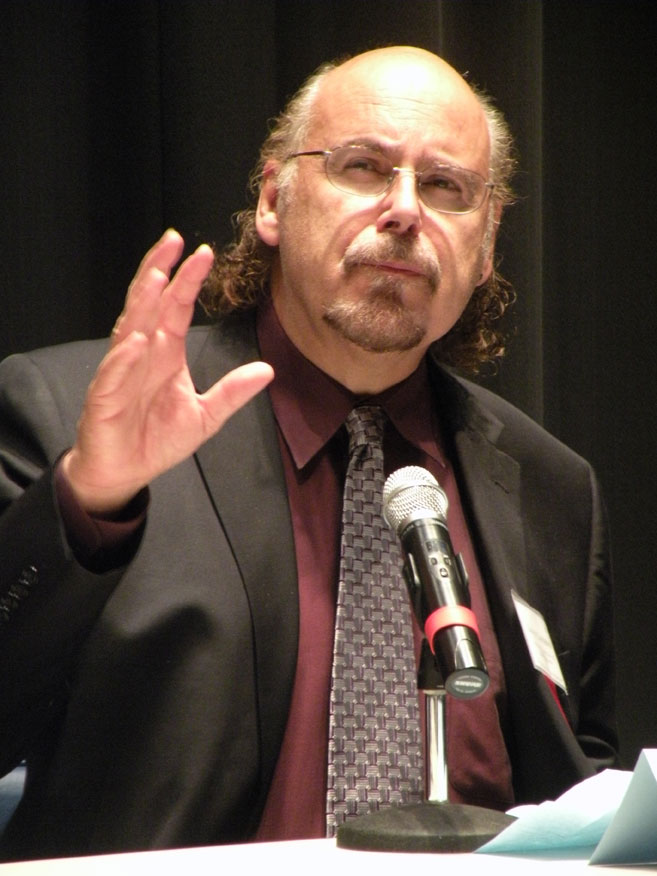
The Huffington Post published an account of Davíd Carrasco's response to an episode of Reza Aslan's show Believers on CNN.
Carrasco appears in an article in the Harvard Gazette following biologist Brian D. Farrell's lecture at the Harvard Museum of Natural History exploring the roots of consciousness.
Video of the lecture is on Facebook. Carrasco's remarks begin at 1:07:45
Some years ago African American philosopher Cornel West and Mexican American historian Davíd Carrasco met at Sanders Theater, Harvard University, to forge a public dialogue about “Brown and Black” social and intellectual partnerships to help the “new demography become a better democracy.” This phrase, made popular by Carrasco, and its possibilities are under aggressive political and psychological attack by changing policies and familiar forces in the US. Therefore the Black and Brown dialogues, alliances, and organizing between African American and Latino peoples are needed more than ever. Watching these videos will help the partnership develop in elevating and fruitful ways.
Whose Eyes on What Prize: A Black and Brown Discussion of Shades of Invisibility
John Phillip Santos wins Texas Medal of the Arts and shares his work with Davíd Carrasco on the lost Aztec Mapa.
Davíd Carrasco's ties to Smeltertown, El Paso noted in feature article by Lauren Villagran in OnEarth, the Natural Resources Defense Council's online magazine.
Davíd Carrasco to speak (event details) at 12:30 p.m. on Thursday, November 3rd at Youngstown State University as part of the Dr. Thomas and Albert Shipka Speakers Series.
In an interview with Liz Minea, Davíd Carrasco gives his thoughts on the history of U.S.–Mexico relations, examining the Trump candidacy in context.
The research of a former student of Davíd Carrasco has been featured in the Christian Science Monitor. Carrasco's insights in the role human sacrifice in the underpinnings of civilization first published in Carrasco's City of Sacrifice were inspirational to the interpretation featured in the article.

Photograph © President and Fellows of Harvard College, Peabody Museum of Archaeology and Ethnology
The exhibit is a result, in part, of Carrasco's collaboration with the anthropologist/musician Dr José Cuellar who brought these ocarinas and flutes back to sonic life during his semester long work as a Hrdy Fellow at the Peabody.
Carrasco, on January 20th (click here for details), will give an illustrated lecture at Colorado College entitled “Sacred Icon, Sacred Hill: La Virgen de Guadalupe as Migrant Mother and Sacred Bundle” on two types of Mexican sacrality—the ubiquitous image of La Virgen de Guadalupe and the sacred place of Tepeyac where her apparitions first occurred.
The Gazette recently asked six Harvard professors to discuss their favorite objects. Carrasco took the opportunity to recall a trip to Mexico where he introduced Nobel Prize winners Toni Morrison and Gabriel Garcia Márquez with the help of Carlos Fuentes.
Hear David Carrasco, University of Chicago Divinity School's Alumnus of the Year (2014) hold forth about the formation of his own thought as an Historian of Religion working in Mesoamerican cities and symbols. Carrasco tells the story of how he created his distinctive “ensemble” approach by running his own threads of thinking and emotion through the works of the Romanian Mircea Eliade, the African American Charles Long, Mexican poet Octavio Paz and British urban ecologist Paul Wheatley. Follow his storytelling about how his Mexican American identity prepared him to travel with Toni Morrison to Mexico City to meet with Gabriel Garcia Marquez. Its worth a listen for as the actor Peter Fonda once said when he heard Carrasco speak at the Santa Fe Film Festival, “I wish I could speak like you. I can only act like I can speak like you!”
Davíd was chosen as “one of the favorite Harvard professors” by the Harvard Class of 2014.
Read the full text of Davíd's letter to the class of 2014 to be printed in their yearbook.
Update: Download the letter as printed in the yearbook.
Tufts University Chaplaincy and the Association for College and University Religious Affairs welcomed Davíd Carrasco, Neil L. Rudenstine Professor of the Study of Latin America at Harvard University, to campus as a keynote speaker for the annual ACURA Conference 2014. He discussed what he calls the “Latino Springtime,” particularly the migration of religious and cultural practices from Latin America and among Latinos.
Description from the author:
“After almost 30 years, my photos of scholars who participated in the annual symposia sponsored by the Moses Mesoamerican Archive and Research Project (MMARP) have been made available in the book: Scholars in Dark Glasses. Photos of MMARP Symposia 1982 to 1994.”
“Photos are of the archaeologists, anthropologists, ethnographers, historians of religions, art historians, historians, archaeo-astronomers, and many others from Mexico, the US, Japan, UK, and Europe who contributed to the development of a new direction in the study of the life and religious practices of the Aztecs, Maya, and other ancient civilizations of Mesoamerica.”
“The photos selected for the book are from the Lawrence Gustave Desmond Mesoamerican Archive and Research Project Photographs collection archived by the Getty Research Institute in Los Angeles (GRI Special Collections accession number 2014.R.16)”

See the Scholars in Dark Glasses on the publisher's web site.
Dr. Carrasco was the subject of a featured profile in this month's EPIC magazine, the magazine of the Independent Physicians Association.
Read the article as a PDF.
Russell Banks, whose work has distilled blue-collar dreams into moving, sometimes violent, portraits of struggle and loss, will deliver Harvard Divinity School's 2014 Ingersoll Lecture on Immortality Nov. 5 at Sanders Theatre. Read more...
Jorge I. Domínguez, the Antonio Madero Professor for the Study of Mexico and University vice provost for international affairs, acknowledges and puts Carassco's work on the Mapa de Cuauhtinchan No. 2 in context.
The first in a series on Harvard's longstanding ties to Mexico by Corydon Ireland discusses Davíd Carrasco's contribution including a course he's co-teaching with William L. Fash Jr. called “Moctezuma's Mexico: Then and Now.”
Read Harvard's Mexico Connections in the Harvard Gazette.
Contributing Editor of Archaeology magazine, Roger Atwood, interviewed Dr. Carrasco in 2012. The resultant article was published in the July-August issue of Archaeology Magazine and relies on Carrasco's contributions.
Read the Archaeology Magazine cover story: Under Mexico City.
Find Carrasco's article The Paradox of Carnival in the Spring edition of ReVista: Harvard Review of Latin America.
Carrasco's teaching is featured in this Harvard Magazine article on active learning.
Davíd Carrasco is featured on page 91 of James Carroll's profile of Pope Francis Who Am I to Judge in the December 23, 2013 issue of the New Yorker.
In a series of interviews and speeches in the first few months after his election, in March, Pope Francis unilaterally declared a kind of truce in the culture wars that have divided the Vatican and much of the world. Repeatedly, he argued that the Catholic Church's purpose was more to proclaim God’s merciful love for all people than to condemn sinners for having fallen short of strictures, especially those having to do with gender and sexual orientation. His break from his immediate predecessors is less ideological than intuitive, an inclusive vision of the Church centered on an identification with the poor.
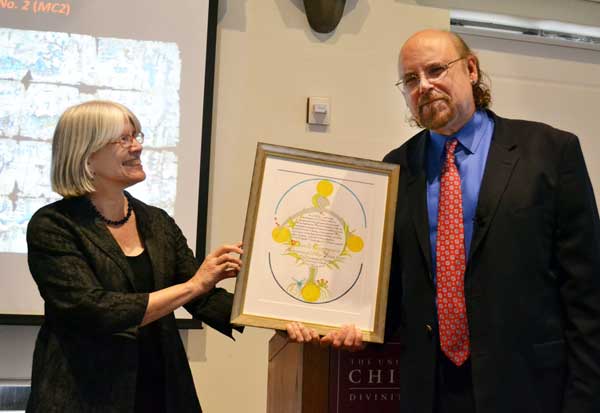 From
the University of Chicago:
From
the University of Chicago:
Every year, the Baptist Theological Union
presents the Divinity School Alum of the Year
Award to a Divinity School graduate. The award
recipient is chosen with the following
criteria in mind: excellence of work and
continued contributions to the person's
field; recognition and influence beyond the
person's immediate sphere; and embodiment
of the Divinity School's goals and values,
and the range and extent of its educational programs.
Our 2014 Alumnus of the Year is Davíd Carrasco (ThM 1970, MA 1974, PhD in the History of Religions area, 1977). He will give his Alumnus of the Year address on Thursday, April 24, 2014, at 4:30 p.m. in Swift Lecture Hall with a reception to follow. He will also deliver, at noon that same day, the Spring Quarter Dean’s Craft of Teaching Seminar.
